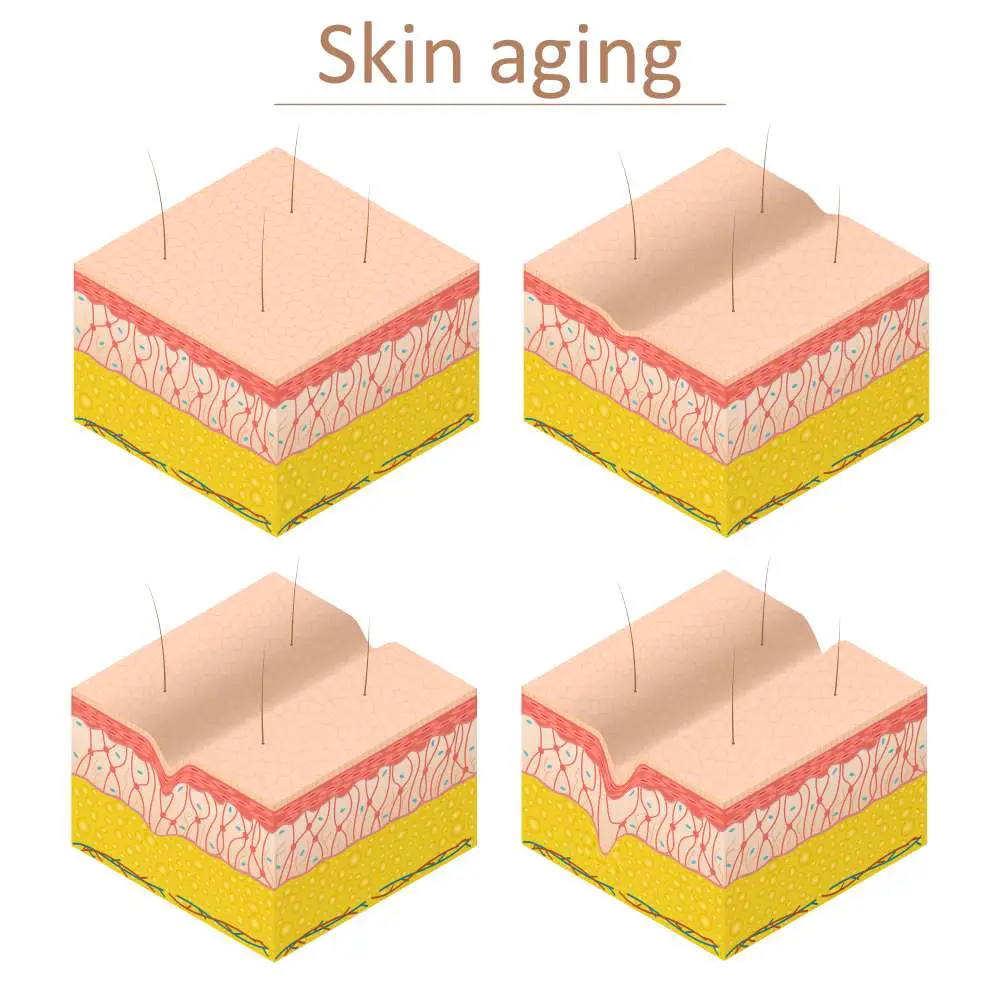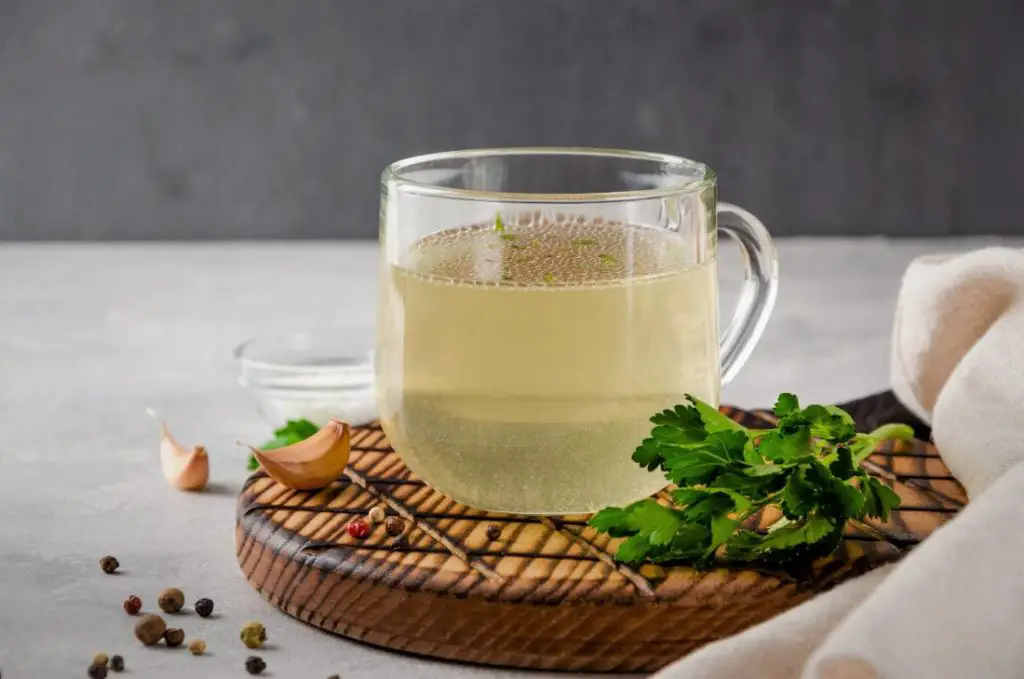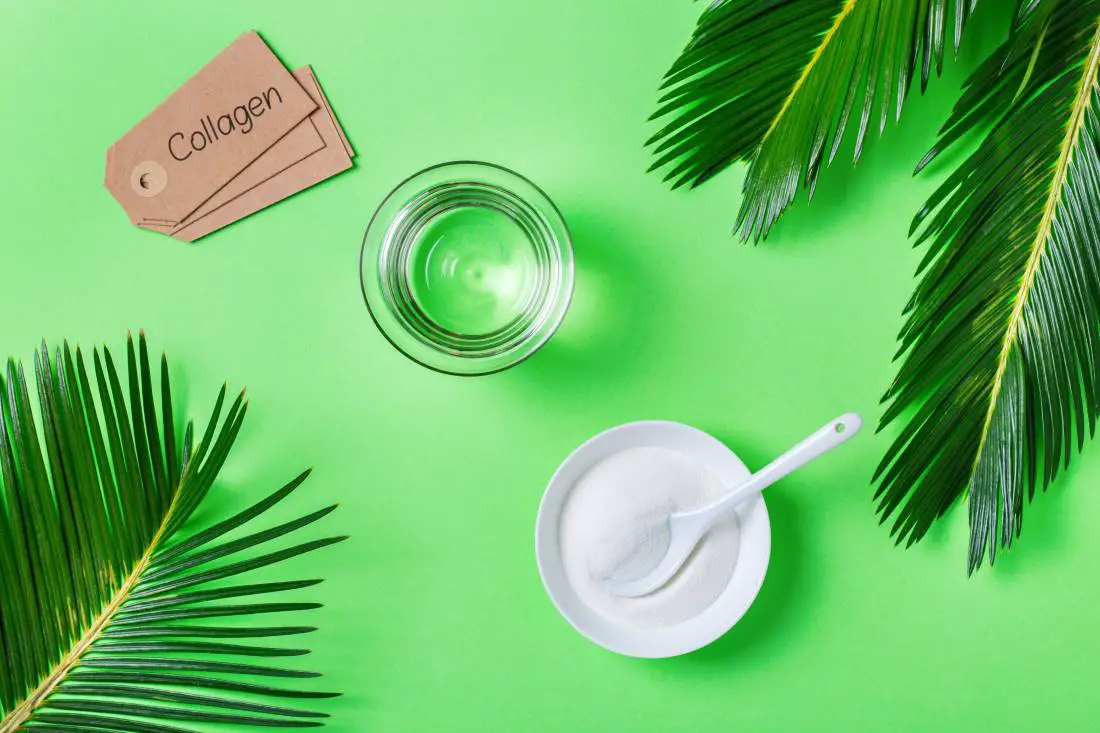Is collagen powder high histamine? If so, is there a low-histamine collagen supplement? Collagen has gained popularity in recent years for its potential benefits in promoting skin health, joint function, and gut health. However, you might be concerned about whether collagen is high in histamine, as high histamine levels can cause allergic reactions and other health issues.
If you choose foods high in histamine, it increases your body’s histamine burden and can trigger histamine intolerance symptoms. In this article, we will explore the relationship between collagen and histamine to help you make informed decisions about your collagen intake.
The Role of Histamine
Before jumping into collagen and histamine, it helps to understand what histamine is and why our bodies make it. Histamine isn’t just the stuff of allergies and hives – it serves some important functions when levels are balanced.
Our bodies produce histamine naturally as part of the immune response. When injury or allergens enter the picture, mast cells release histamine to kickstart healing. The release of histamine dilates blood vessels, allowing more immune cells to rush to the scene.
Histamine also helps regulate processes like stomach acid and neurotransmitters for sleep, appetite and mood.So histamine isn’t inherently bad. We need healthy baseline levels of it.
Problems arise when too much histamine accumulates in your body. That’s when overresponses like hives, headaches and digestive issues can occur.Now that we understand the dual nature of histamine, we can better evaluate how collagen supplements may interact with the body’s delicate histamine balance.
What Is Histamine Intolerance?
Histamine intolerance occurs when the body is unable to break down histamine efficiently, resulting in an accumulation of histamine in the body.
Common symptoms of histamine overload include headaches, nasal congestion, skin rashes, and digestive issues. These symptoms can be similar to those experienced during an allergic reaction, but histamine intolerance is not an allergy in the traditional sense.
People with histamine intolerance may experience symptoms after consuming foods that are high in histamine or that trigger the release of histamine in the body. Some examples of histamine-rich foods include aged cheeses, fermented foods, cured meats, and certain types of fish. (7)
In addition to dietary factors, other factors that can contribute to histamine intolerance include certain medications, such as nonsteroidal anti-inflammatory drugs (NSAIDs), some antibiotics, and alcohol consumption. (8)
Managing histamine intolerance involves avoiding or reducing the consumption of histamine-rich foods and addressing any underlying gut health issues that may be impair the ability to break down histamine .
It’s important to note that histamine intolerance is a complex condition, and its diagnosis and management should be done under the guidance of a healthcare professional.
Choosing Low Histamine Foods is Challenging
Knowing what to eat and not eat with histamine intolerance is tricky, since not all foods are tested to see how much histamine they contain and whether they trigger histamine release. It would be easier to treat histamine intolerance if they did!
For some foods, you must judge how other people with histamine intolerance respond to the same foods, and also monitor your own body’s response to them by tracking your symptoms.
Since everyone has different levels of diamine oxidase, the enzyme that breaks histamine down, how you respond to a different food depends on the totality of yoru diet. That’s why it’s important to keep a food dairy and know what your individual tolerance to each food is.
Plus, there may be other compounds in the foods you eat, like other amines, that can trigger or worsen histamine intolerance symptoms. With collagen, things are tricker since makers of collagen powder don’t test their powder for histamine.
The amount of histamine may vary too, depending on how the manufacturer makes the collagen powder.

What is Collagen Powder?
Collagen is a structural protein that makes up connective tissue, the tissue that makes up various tissues in your body, including the cartilage inside your joints, tendons, the outer layer of blood vessels, and even bone. Collagen is made from amino acids like glycine, proline and hydroxyproline.
Collagen also lies in the dermal layer of your skin, where it gives skin firmness and resistance to wrinkling. (5) Collagen also aids in wound healing. Based on its many functions, collagen can be very firm, as in bone tissue or less rigid, as in the collagen that surrounds blood vessels.
When injury occurs, collagen jumps into action to create guideposts for new tissue to heal properly.So while it may not be the flashiest protein, collagen plays a quiet but powerful role behind the scenes. Our bodies use it to build the structures that allow us to stretch, bend and stay injury-free as we go about our active lives. Without enough collagen, we would literally fall apart at the seams!
Collagen powder is a supplemental form of collagen. It comes in several forms. The most popular are collagen hydrolysate and gelatin. Collagen hydroxylate is hydrolyzed collagen, collagen broken down into amino acids that your body can more easily absorb.
Potential Health Benefits of Collagen
Collagen powder is a supplemental form of collagen. It comes in several forms. The most popular are collagen hydrolysate and gelatin. Collagen hydroxylate is hydrolyzed collagen, collagen broken down into amino acids that your body can more easily absorb.
Collagen powder supplements are popular as small studies show supplementing with collagen may have health benefits, although its an area that needs more research.
As with most supplements, too many people jump on the bandwagon before there’s enough evidence that there’s a benefit. The most common health joint-related health problem people take collagen for is osteoarthritis, a degenerative form of arthritis caused by damage and breakdown of the cartilage inside joints.
What if you provide the joint with more collagen? The hope is that supplying more collagen to joints will help rebuild damaged cartilage and either improve the symptoms of osteoarthritis or slow its progression.

The Science Behind Collagen Supplements for Osteoarthritis
Is there science to support the joint health benefits of collagen supplements? One review that looked at multiple randomized placebo-controlled trials relating to collagen supplements and osteoarthritis symptoms found that subjects who took a collagen supplement experienced improvements in two scales that measure arthritis symptoms.
Participants who took collagen reported less pain, stiffness, and improved function. (1)
Another study concluded that collagen hydrolysate and undenatured collagen may be of benefit for joints ravaged by osteoarthritis. (6) Many people are turning to collagen supplements because there are so few treatments for osteoarthritis.
Collagen for Skin Aging
Another reason collagen supplements are increasing in popularity is as a nutraceutical for skin aging. Collagen is a structural protein in the dermis, the layer just beneath the epidermis, in the skin. It’s collagen that gives your skin support and resistance to wrinkling and laxity.
Some studies show supplemental collagen improves some aspects of skin aging. For example, a double-blind, placebo-controlled, randomized trial of 120 individuals found benefits. (2) The subjects consumed a collagen supplement or a place for 90 days.
The results? Those who consumed the collagen supplement experienced improvements in skin elasticity. When skin is more elastic, it’s firmer and appears more youthful. Plus, participants who took the collagen supplement showed improvements in skin texture.
So, people are using collagen powder supplements mainly for joint issues, like osteoarthritis, and to support skin health and healthy skin aging. However, it’s an area that still needs more research, as the studies showing benefits are small. Yet they are randomized controlled trials, the highest quality type of study.

Is Collagen Powder High Histamine?
Despite the potential health benefits of collagen for osteoarthritis and skin aging, collagen powder and collagen supplements worsen histamine intolerance symptoms in some people.
There are reports of histamine intolerance sufferers who tried collagen powder or bone broth, another source of collagen, and claim their symptoms worsened.
Among patients I’ve talked to, the most common symptom mentioned was diarrhea. It’s impossible to say whether it was the collagen powder or some other factor that triggered the diarrhea, but it went away once they stopped the collagen supplement.
Taking a collagen powder has the potential to unleash a number of histamine intolerance symptoms if you have very low diamine oxidase level or you’re sensitive to the amines in collagen powder or some other component.
A few people with histamine intolerance experienced a constant headache after they began a collagen supplement Since diarrhea and headache are non-specific symptoms that have many causes, it’s hard to say whether the collagen powder was responsible for the symptoms.
Still, it’s a sign that you should approach supplemental collagen with caution.
Are There Low-Histamine Collagen Supplements?
If you want the potential benefits that collagen offers for joint or skin health, but have histamine intolerance, you might wonder if there are low-histamine collagen supplements safe to take?
Since collagen makers don’t test their products for histamine or other biogenic amines, you don’t know the histamine content of a given collagen supplement.
So, there’s no confirmed low-histamine collagen supplement you can count on not to trigger histamine intolerance.
Bone Broth is Rich in Collagen Too
It’s a similar story with bone broth. When manufacturers make bone broth, they add animal bones and what’s in the bones of animals? Yep! Collagen. So, approach bone broth with caution too. It’s possible that during the making of bone broth, histamine enters the broth from the animal flesh and bones used to make it.
The amount of histamine that enters the broth would increase when the bones are simmered longer. So, bone broth would contain varying amounts of histamine based on how long you simmer the bones.
Because everyone is a little different, I’ve talked to people with histamine intolerance who have no problems with collagen powder or bone broth. If you have osteoarthritis and are determined to try it, keep a food diary, and track your symptoms closely.
If you have histamine intolerance, it’s best to avoid collagen supplements, unless you have a strong reason to take one or your doctor recommends it.
And even then, approach them with caution. Many people are taking collagen now and drinking bone broth because it’s trendy.

Other Concerns about Collagen Powder if You Have Histamine Intolerance
Beyond the histamine content of collagen powder, there are other reasons to be cautious about taking supplemental collagen. Independent testing of some collagen powders shows they contain harmful impurities like heavy metals.
When you take a supplement, you have no assurance it contains what’s on the label. It’s best to select supplements independently tested by a third party for purity.
According to Harvard Health, bone broth also poses heavy metal risk. (3) A study showed that bone broth contains harmful heavy metals like lead and cadmium, and only contains small quantities of minerals, like calcium and magnesium. (4)
It’s not surprising that bone broth contains lead, since animals who take in lead from the environment store it in their bones. Animal bones can also store other toxic metals.
When you consider the fact that bone broth also contains histamine, it’s a no-go for most people with histamine intolerance.
Avoid Collagen Supplements
Is collagen powder high histamine? One thing most people with histamine intolerance learn early is that foods that are healthy for other people can cause reactions if you have histamine intolerance. For some people, that includes collagen supplements and foods high in collagen, like bone broth.
Anecdotally, not everyone tolerates collagen supplements well, and there aren’t known low-histamine collagen supplements out there.
Therefore, I would recommend approaching collage supplements with caution if you hae histamine intolerance.
References:
- García-Coronado JM, Martínez-Olvera L, Elizondo-Omaña RE, Acosta-Olivo CA, Vilchez-Cavazos F, Simental-Mendía LE, Simental-Mendía M. Effect of collagen supplementation on osteoarthritis symptoms: a meta-analysis of randomized placebo-controlled trials. Int Orthop. 2019 Mar;43(3):531-538. doi: 10.1007/s00264-018-4211-5. Epub 2018 Oct 27. PMID: 30368550. https://pubmed.ncbi.nlm.nih.gov/30368550/
- Genovese L, Corbo A, Sibilla S. An Insight into the Changes in Skin Texture and Properties following Dietary Intervention with a Nutricosmeceutical Containing a Blend of Collagen Bioactive Peptides and Antioxidants. Skin Pharmacol Physiol. 2017;30(3):146-158. doi: 10.1159/000464470. Epub 2017 May 20. PMID: 28528342.
- “Collagen | The Nutrition Source | Harvard T.H. Chan School ….” https://www.hsph.harvard.edu/nutritionsource/collagen/.
- Hsu DJ, Lee CW, Tsai WC, Chien YC. Essential and toxic metals in animal bone broths. Food & nutrition research. 2017 Jan 1;61(1):1347478.
- Schönborn K, Willenborg S, Schulz JN, Imhof T, Eming SA, Quondamatteo F, Brinckmann J, Niehoff A, Paulsson M, Koch M, Eckes B, Krieg T. Role of collagen XII in skin homeostasis and repair. Matrix Biol. 2020 Dec;94:57-76. doi: 10.1016/j.matbio.2020.08.002. Epub 2020 Sep 2. PMID: 32890632. https://pubmed.ncbi.nlm.nih.gov/32890632/
- Honvo G, Lengelé L, Charles A, Reginster JY, Bruyère O. Role of Collagen Derivatives in Osteoarthritis and Cartilage Repair: A Systematic Scoping Review With Evidence Mapping. Rheumatol Ther. 2020 Dec;7(4):703-740. doi: 10.1007/s40744-020-00240-5. Epub 2020 Oct 17. PMID: 33068290; PMCID: PMC7695755.
- Durak-Dados A, Michalski M, Osek J. Histamine and Other Biogenic Amines in Food. J Vet Res. 2020 Apr 30;64(2):281-288. doi: 10.2478/jvetres-2020-0029. PMID: 32587916; PMCID: PMC7305651.
- Pham DL, Kim JH, Trinh TH, Park HS. What we know about nonsteroidal anti-inflammatory drug hypersensitivity. Korean J Intern Med. 2016 May;31(3):417-32. doi: 10.3904/kjim.2016.085. Epub 2016 Mar 31. PMID: 27030979; PMCID: PMC4855107. https://pubmed.ncbi.nlm.nih.gov/27030979/

